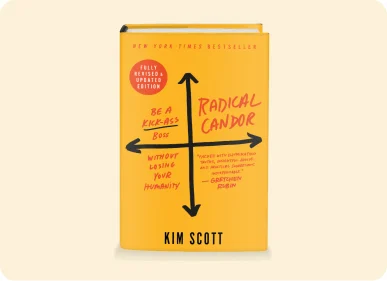Great company culture isn’t about ping pong tables — it’s about trust and high standards.
I’m writing this from our bi-annual Team Week in Washington, D.C., where all Goodshuffle employees gather to connect, align, and reinforce our culture. These in-person moments remind me that culture isn’t created through perks or office amenities — it’s built through trust, candor, and relentlessly high standards.
A high-freedom, high-responsibility culture isn’t possible with underperforming employees, ineffective managers, or weak leadership. But because I know you want to create an environment where great people thrive, you must address mediocrity head-on. I strongly believe a smaller team with sky-high standards will create a more vibrant culture than a larger team where mediocrity is tolerated. One underperformer can give an entire team permission to coast.
Building a culture of excellence is absolutely possible. At Goodshuffle, we reference No Rules, Rules (the Netflix culture book) as our guide. While this blueprint for culture and management will undoubtedly make some of you uncomfortable — I know it was for me at first — I’m positive that applying its wisdom to your business will lead to positive outcomes:
🧠 Values in action: Our company values — show up, speak up, sincerely care, and learn from everything — guide every decision we make. Every. Single. One. It also makes correcting “poor” behavior clear when someone’s actions are out of alignment with what we value.
⭐ Talent density: Focus relentlessly on building teams of exceptional people who elevate each other. Ask yourself regularly: “If Katie were to tell me that she was taking a new job, would I fight to keep her?” If Katie doesn’t pass the ‘keeper’ test, it’s time to coach her up or out.
💬 Radical candor: Create an environment where direct, kind feedback flows freely. Feedback flows continually at Goodshuffle; we do not wait for performance reviews to assess someone’s performance. It’s done in real time.
🧭 Lead with context, not control: Instead of creating rigid processes, give your team the context they need to make good decisions. Yes it takes more time up front, but it saves time in the long run. Out of all the advice I’m giving in this column, this is the hardest for me to naturally follow because I always feel like I’m short on time.
🔑 Freedom with responsibility: As your team demonstrates excellence, gradually remove controls. (For more on this, check out this quick read on task-relevant maturity).
Operating in this way requires that we take time to know and understand one another, and that we assume positive intent even in the most stressful situations. It’s why it’s so important to us as leaders at Goodshuffle to invest in time together. As our company grows faster and faster, it leads to more opportunities for stress to get the best of us. Bonding moments like Team Week help nip that in the bud.
I encourage you to create bonding moments for your team, as well. It may not be an all-week retreat, but talk to your team about how they’d value connecting with one another and make sure in between those moments you follow-up with dedicated 1:1 time to check in on their growth.
I’ve got to hop to a feedback training session, and then 8 of my talented coworkers are giving presentations on their interests — everything from Charleston dancing to diamonds to Facebook Marketplace (that one’s mine). This really is one of my favorite weeks of the year. 😊
See you next Monday,
Mallory Mullen
Goodshuffle









